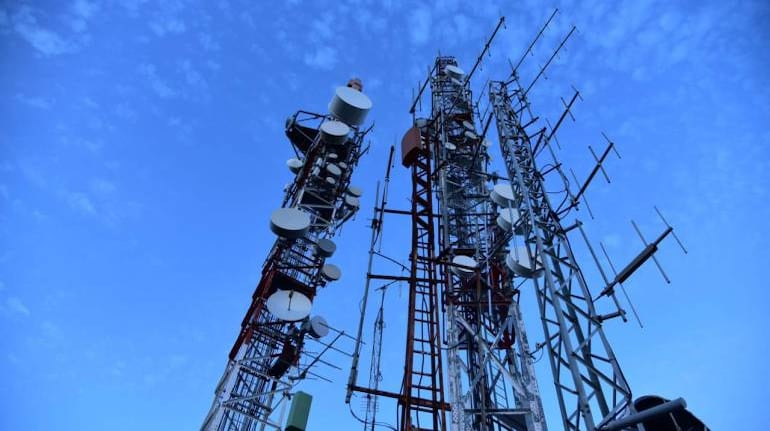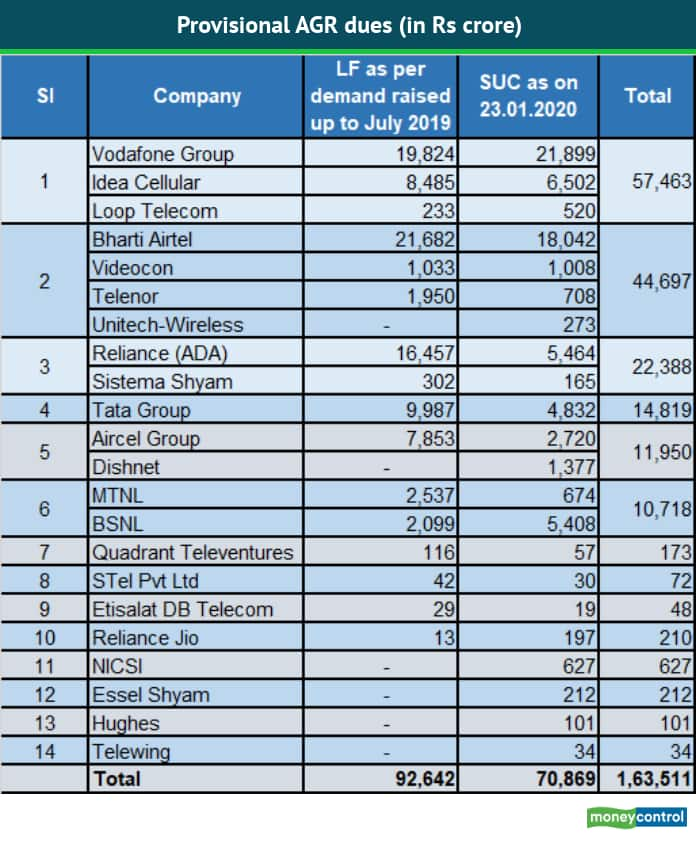



On February 14, 2020, the Supreme Court set the ball rolling for the recovery of Adjusted Gross Revenue (AGR) dues worth over Rs 1.75 lakh crore from the incumbent telecom operators. Coming down heavily on the Department of Telecommunications (DoT) for issuing a letter dated January 23, 2020, to its field units not to take any coercive action against the telcos, the court directed it to withdraw the letter within 30 minutes, failing which the officer who issued the letter will be in jail by the evening for contempt.
The apex court in its judgment on October 24, 2019, had directed the telcos to pay AGR dues in three months. However, hours before the deadline, the DoT, after fighting the telcos for 14 years and finally winning the case, took a U-turn and issued the “no coercive action” letter. What prompted the DoT to issue such a letter is a matter of public interest, which must be unravelled.
The court’s February 14 order reads as follows:
“This case projects a very disturbing scenario. The companies have violated the order passed by this Court in pith and substance. In spite of the dismissal of the Review application, they have not deposited any amount so far. It appears the way in which things are happening that they have scant respect to the directions issued by this court. A Desk Officer of the Department of Telecommunications has the temerity to pass the order to the effect of issuing a direction to the Accountant General, another Constitutional Authority, “not to insist for any payment pursuant to the order passed by this Court and not to take any coercive steps till further orders. This is nothing but a device to scuttle order of this Court. This kind of order should not have been passed by the Desk Officer at all. In the circumstances, we draw contempt proceedings against the Desk Officer for passing the order and violating the order passed by this Court. The Managing Directors/Directors of the companies also to show cause why we should not initiate contempt proceedings against them for violating the order passed by this Court by not depositing the amount, on the next date of hearing. Let the concerned officer, sitting over the order passed by this Court, also file reply.It is made clear that in case the order passed by this Court is not complied with, the above persons shall remain personally present in Court on the next date of hearing. List on March 17, 2020.”The case dates back to 1999 when all the private telcos started pleading with the government that the licence fee (LF), they committed to pay to obtain licenses during bidding, is high and unsustainable. The government then gave them the option to move to the revenue-share regime under which it was proposed that operators would provisionally pay LF at 15 per cent of the gross revenue (GR). It was also clearly stated that the GR would be the total revenue of the licensee company excluding the interconnection-related call charges paid to BSNL / MTNL and the service tax collected by the licensee on behalf of the government from their subscribers. After these two exclusions, it is called as adjusted GR (AGR).
Finally, in 2001, the telcos signed fresh licence agreements agreeing to the definition of AGR. However, in 2003, most of the telcos filed petitions before the Telecom Dispute Settlement and Appellate Tribunal (TDSAT) challenging the definition of AGR. The TDSAT pronounced its interim order on July 7, 2006, and said the government should have consulted the Telecom Regulatory Authority of India (TRAI) for defining AGR. The DoT challenged the TDSAT’s order before the Supreme Court.
On September 13, 2006, the TRAI gave its recommendations to TDSAT. The TRAI while redefining AGR also said such definitions should be applicable from a prospective date. Since the TDSAT’s order was an interim one and the TRAI had in the meantime given its recommendations, the Supreme Court on January 19, 2007 dismissed the DoT’s appeal and gave them liberty to approach the TDSAT.
On August 30, 2007, the TDSAT passed the final order accepting most of the recommendations of the TRAI. In addition, the TDSAT gave the telcos some additional relief. It said the revised definition of AGR will be applicable from the date of filing of petition by telcos, instead of a prospective date.
The DoT filed appeal against the TDSAT judgment, cross appeals were filed by almost all the operators. Finally, on October 11, 2011, the Supreme Court held that the TRAI and the TDSAT cannot define AGR and ruled out any relaxations after the TSPs (telecom service providers) have signed the licences. The court said the tribunal can only look at the computation of demands raised by the DoT, whether it is in accordance with the licence agreement or not.
With this judgment, the writing on the wall was crystal clear. The telcos knew that they will have to pay based on the agreed AGR. Around this time, as per CAG audit report for 2006-07 to 2009-10, the total unpaid dues of six private telcos on account of LF and spectrum usage charges (SUC) was Rs 5,213 crore.
But even if they wanted to contest legally, they could have paid LF and SUC “under protest” to save on interest, and penalties, which is almost now 70 per cent of the total demand of about Rs 1.75 lakh crore. They chose to delay the payment in the hope that they will be able to manage the system. They preferred to dip into the government’s money to expand their businesses - in India and abroad.
For computation purposes, the matter came back to the TDSAT. But once again, the TDSAT, in its order of April 23, 2015, exceeded its jurisdiction and went on to redefine AGR. The DoT filed an appeal before the apex court and cross-appeals were also filed by various telcos. Finally, on October 24, 2019, a three-judge bench, in its unanimous order, allowed the appeal in its entirety in favour of the DoT. The apex court also criticised the TDSAT for getting into the definition of AGR even after its 2011 judgment.
Even after the above order, Bharti Airtel and Vodafone Idea instead of paying dues, filed a review petition which the court dismissed on January 16, 2020. Even after this, both the operators filed curative petition, and the latest order of the apex court issuing the contempt notices came on this. This is the fourth order against the telcos – 2011, October 2019, January 2020 and February 2020.

Disclaimer: Reliance Industries Ltd. is the sole beneficiary of Independent Media Trust which controls Network18 Media & Investments Ltd which publishes Moneycontrol.
Anil Kumar is the editor-in-chief of Telecom Live and founder of Telecom Watchdog, an NGO. Views are personal.Discover the latest Business News, Sensex, and Nifty updates. Obtain Personal Finance insights, tax queries, and expert opinions on Moneycontrol or download the Moneycontrol App to stay updated!
Find the best of Al News in one place, specially curated for you every weekend.
Stay on top of the latest tech trends and biggest startup news.